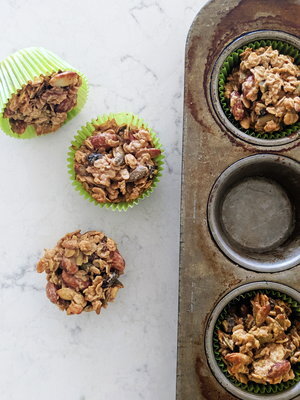by Ally Ringer, MScN in Portland, Oregon
When it comes to sleep quality and quantity, your diet is a big factor that often gets ignored. While you probably know to avoid sugar and caffeine in the hours before bedtime, there are nutrients that you should incorporate into your diet throughout the day to help with a good night’s sleep.
WHAT MAGNESIUM DOES FOR YOUR BODY
Magnesium is vital for the human body, playing an essential role in bone health, calcium absorption, glucose metabolism (diabetes prevention), heart health, muscle and nerve function, and mental health (reducing anxiety and depression).
If that’s not enough, magnesium has been shown to play a key role in sleep.
It helps relax the nervous system, which is essential for actually getting to sleep.
It also regulates melatonin, which guides the body’s sleep cycle.
Studies have shown that magnesium deficiencies can lead to insomnia and restless leg syndrome.
While magnesium studies have been performed exclusively on adults, there is no reason to believe that children would not receive magnesium’s many sleep benefits.
These studies have shown that magnesium can help you get to sleep faster AND increase the quality of that sleep. Magnesium can also help alleviate anxiety and depression, both of which have a negative impact on sleep quality. (See bottom for sources)
Foods containing high quantities of magnesium are also full of other beneficial vitamins and minerals that encourage overall health and wellness. And while some of these foods might be more adult-friendly (raw cacao, dark chocolate, etc.), there are plenty of options to fill kids’ plates, as well. Consider adding these foods to the rotation to build healthy sleep habits.
Foods high in magnesium:
-
Green leafy veggies (spinach, kale, swiss chard)
-
Fruits (figs, avocado, banana, raspberries)
-
Nuts and seeds (almonds, pumpkin seeds, sesame seeds, sunflower seeds, flaxseeds, cashews)
-
Legumes (black beans, chickpeas, kidney beans, pinto beans)
-
Seafood (salmon, tuna)
-
Veggies (beets, broccoli, brussels sprouts, asparagus)
-
Whole grains (brown rice, oats, quinoa)
-
Raw cacao
-
Dark chocolate
Granola Muffins
This mashup of a granola bar and a muffin is packed with magnesium, healthy fats, and fiber. Feel free to swap in your nut butter of choice, as well as whatever nuts and seeds you prefer.
-
1 ½ cups old fashioned oats
-
½ cup raw pumpkin seeds
-
½ cup raw almonds
-
½ teaspoon salt
-
1 teaspoon cinnamon
-
½ cup chopped dried figs
-
1 egg
-
¼ cup melted coconut oil
-
¼ cup pure maple syrup
-
½ teaspoon pure vanilla extract
-
½ cup cashew butter
Preheat the oven to 350 degrees F. Line a 12-cup muffin tin with paper liners.

In a large bowl, stir together the oats, seeds, nuts, salt, cinnamon, and dried figs.
In a smaller bowl, stir together the egg, oil, maple syrup, vanilla, and cashew butter until smooth.
Pour the wet mixture into the dry and stir until well-combined. Divide this mixture evenly between the muffin cups (you can fill them to the top, as these will not rise). Bake at 350 degrees for 12-15 minutes, or until golden brown.
These will retain some crunch for the first day or two, and soften as they sit. Store in an airtight container for up to one week.
Sources:
Effects of a Magnesium Deficient Diet on Sleep Organization in Rats

FLASH SALE
ONE WEEK ONLY
Keep sleep a thing on vacation with the Little Z's Travel Guide!